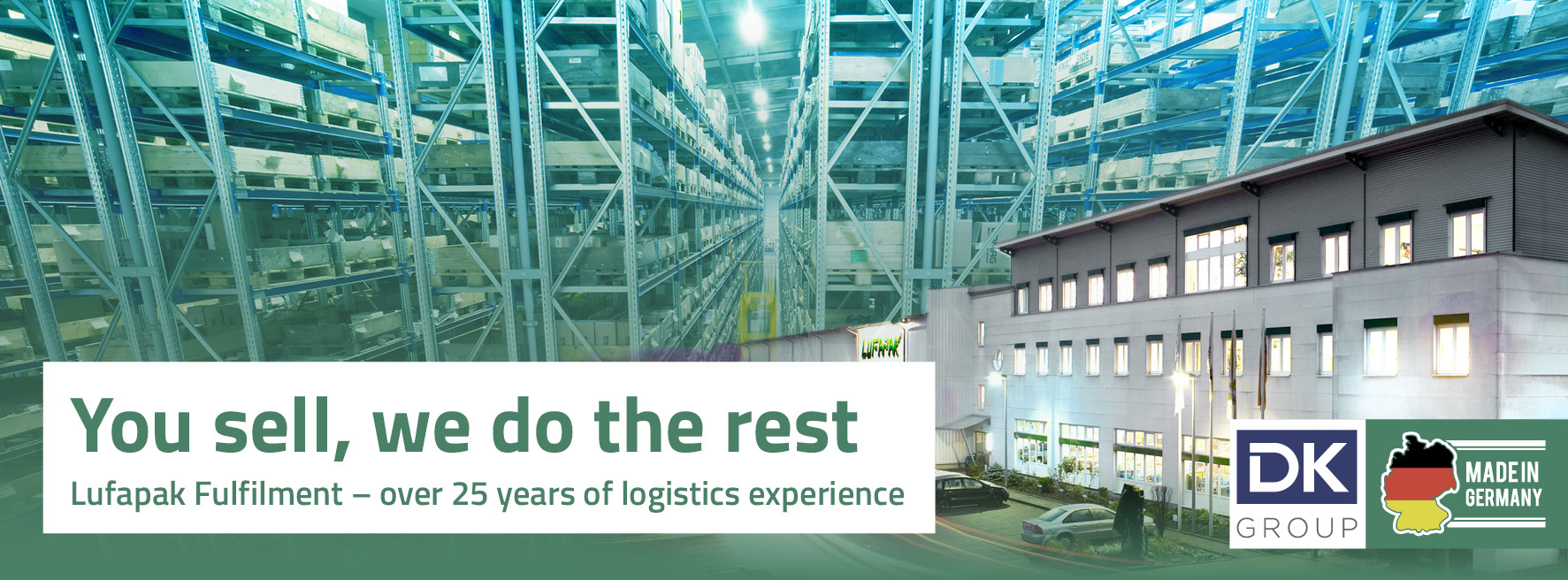sales@lufapak.de +49 2631/384-0 Contactform
Container logistics
Container logistics is an essential part of global trade and international supply chains. It encompasses the planning, control and monitoring of containers throughout their entire life cycle, from production to transport and unloading. In a globalised world, container logistics plays a central role in increasing efficiency and reducing costs in freight transport. This article provides a comprehensive overview of the history, fundamentals, technologies and challenges of container logistics and looks at how modern innovations are shaping the industry.
History of container logistics
Container logistics has undergone a fascinating development that is closely linked to globalisation and international trade. From its early beginnings to modern container logistics, much has changed. This section provides a comprehensive review of the most significant developments and milestones.
The beginnings of containerisation
The history of containerisation begins in the 1950s, when the need for more efficient transport solutions became increasingly urgent. Before containers were introduced, transporting goods was extremely labour-intensive and time-consuming, as each load had to be loaded individually. The introduction of standardised containers revolutionised this process by making it much easier to load, unload and transport goods. Early challenges included the development of uniform container sizes and standards as well as the adaptation of existing infrastructure such as ports and ships to the new requirements.
Important milestones in container logistics
Since the early days of containerisation, the industry has experienced numerous important milestones. One of the first and most significant advances was the standardisation of container sizes by the International Organization for Standardisation (ISO) in the 1960s. This enabled the smooth integration of containers into various means of transport such as ships, trains and lorries. Other important developments include the introduction of container ships specifically designed to transport large volumes of containers and the automation of port facilities, which led to a dramatic increase in efficiency and reduction in costs.
More recently, technological innovations such as telematics and track-and-trace systems have further improved transparency and control in container logistics.
Basics of container logistics
Container logistics forms the backbone of international freight transport and ensures the efficient and cost-effective transport of goods over long distances.
This section provides an introduction to the basic concepts and principles that form the foundation of container logistics.

Types of containers
Containers come in different types and sizes to meet the diverse needs of the transport industry. The most common types of containers are standard containers, which are typically 20 or 40 feet long and are used to transport a variety of goods. There are also special containers such as reefers, which transport temperature-sensitive goods, and tank containers for transporting liquids and gases. Flatbed and open-top containers are also among the specialised variants used for bulky or oversized freight.
Each container type is designed to fulfil specific requirements and ensure the safety and integrity of the transported goods.
Logistical processes in container logistics
The logistical processes in container logistics involve a series of steps to ensure that containers move efficiently and safely from their point of origin to their destination.The process begins with the planning and coordination of the transport, including the selection of the appropriate container and the optimal route.This is followed by the loading of the container, which must be carefully planned to ensure stability during transport.After loading, the container is transported to the port or terminal where it is loaded onto a ship, train or lorry.During transport, modern tracking systems are used to monitor the location and condition of the container in real time.Finally, the container is unloaded at its destination and the goods are delivered to the recipient.Each of these steps requires precise planning and coordination to avoid delays and damage.
Technology and innovation in container logistics
In recent years, container logistics has evolved significantly through technological advances and innovations.These developments have increased efficiency, reduced costs and opened up new opportunities for the global supply chain.In this section, we explore the latest technological advances that are revolutionising container logistics.
Automation and digitalisation
Automation and digitalisation are playing a central role in the modernisation of container logistics.Automated port facilities and crane systems enable faster and more precise loading and unloading of containers, resulting in significant time and cost savings.Digital technologies such as the Internet of Things (IoT) and artificial intelligence (AI) are being used to improve the real-time monitoring and control of container movements.Telematics systems provide detailed information about a container’s location, status and environmental conditions during transport.These technologies not only increase efficiency, but also accuracy and safety in container logistics by minimising human error and improving transparency in the supply chain.
Sustainability in container logistics
Sustainability is an increasingly important aspect of container logistics.In order to reduce their ecological footprint, companies are focussing on environmentally friendly technologies and practices.These include, for example, the use of energy-efficient vehicles and ships as well as the use of alternative fuels such as LNG (liquefied natural gas).In addition, innovative packaging materials and methods help to minimise waste and maximise reusability.Route optimisation and the implementation of smart logistics systems also help to reduce emissions.By integrating sustainable practices, companies can not only reduce their environmental impact, but also achieve cost efficiencies and strengthen their brand image.
Challenges and solutions in container logistics
Container logistics faces a number of challenges that can affect the efficiency and reliability of global supply chains.In this section, we analyse the most common problems encountered in the industry and present possible solutions.
Bottlenecks and capacity issues
Bottlenecks and capacity issues are key challenges in container logistics.These problems can be caused by a variety of factors, including sudden peaks in demand, inadequate infrastructure and logistical disruptions such as strikes or natural disasters.The effects of such bottlenecks are far-reaching and can lead to delays, increased costs and inefficient supply chains.To meet these challenges, companies rely on various strategies.These include improving infrastructure by expanding port facilities and storage capacity and implementing advanced planning tools that enable better forecasting and management of transport capacity.In addition, the use of real-time data and analyses can help to identify bottlenecks at an early stage and take proactive measures.
Security aspects in container logistics
Safety aspects are another critical area in container logistics.The handling and transport of containers harbours various risks, including theft, damage and the transport of dangerous goods.Comprehensive security measures are required to minimise these risks.These include physical security measures such as the use of GPS tracking and surveillance cameras, as well as securing containers with special locks and seals.In addition, training and awareness programmes for staff play an important role in promoting security-related best practices.Compliance with international safety standards and regulations also helps to reduce the risk of accidents and incidents.By implementing these measures, companies can increase the safety of their container shipments and minimise potential losses.
Conclusion
Container logistics is an indispensable part of global trade and international supply chains.
Overall, container logistics remains a dynamic and growth-orientated field that contributes significantly to the global economy and will continue to play a key role in the international trade landscape in the future.
Contact us now and get advice

